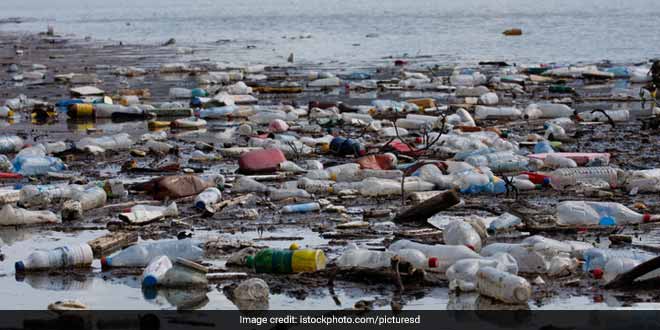The oceans today have around 5 trillion pieces of plastic floating in it. In other words, the plastic waste in our oceans weigh as much as 268,000 tons, that is equal to almost 38,000 African elephants. From fishing lines to flip flops to plastic bottles and all other things plastic can be found in our oceans. Plastic has put our oceans at the brink of disaster, and what are we doing to prevent this danger? The answer is, not enough. India is among the top generators of plastic waste, it dumps around 0.60 million metric tonnes (MT) of mismanaged plastic waste into the oceans. We look at some of the comments and reactions on Twitter, about the initiative spearheaded by United Nations since 2008 in a bid to raise public awareness and how citizens can stop polluting the oceans.
Also Read: World Oceans Day: 5 Trillion Pieces Of Plastic Floating In World’s Oceans
1. A fact that reminded us that we need to re-look at the extent to which we are letting plastics ruin our environment!
Indian Ocean has 1.3 trillion pieces of plastic, making it 2nd most plastic polluted ocean: https://t.co/ZDf9aEuEt7 #OceansDay #SaveOurOcean pic.twitter.com/Bnrd4Jp685
— United Nations in India (@UNinIndia) June 8, 2017
2. There is no option, we need to act and act now.
You want to protect our #Oceans from further pollution? You can start with saying #NoToStraws and #NoToPlastic #WorldOceansDay
— Dia Mirza (@deespeak) June 8, 2017
3. Did you know: Every year around 100,000 marine creatures and approximately 1 million sea birds die, simply, because they ate plastic.
#Oceans of our Earth are precious & beautiful, home to some of the most vibrant living beings–let's protect them together #WorldOceansDay ???? pic.twitter.com/V51zrDNsRk
— Vasundhara Raje (@VasundharaBJP) June 8, 2017
4. It’s a crisis , our oceans are so polluted that it is making its way into the food chain. So we too end up eating plastics contaminated food.
Dumping waste & extracting resources has surpassed ocean’s strength. It's high time we understand the limits of the oceans #WorldOceansDay pic.twitter.com/en6ErU9RYO
— Dr Harsh Vardhan (@drharshvardhan) June 8, 2017
5. Save oceans, it’s key to survival!
June 8 is #WorldOceansDay. Let's remember today & everyday that the ocean gives humankind the keys to its survival https://t.co/IMfhCinzR1 pic.twitter.com/MR4uDjtEP2
— UNESCO ????️ #Education #Sciences #Culture ???????????? (@UNESCO) June 8, 2017
6. Oceans are not the world’s trash bin. People’s lives and livelihoods depend on it.
#WorldOceansDay #India #Pondicherry Indian fishermen worship the oceans as their own mother, it means a lot to us pic.twitter.com/vtqzPqupkO
— Archan Mitra (@ArchanZZ) June 9, 2016
7. Oceans make Earth the living planet
I think of the ocean as the blue heart of the planet. #WorldOceansDay pic.twitter.com/hvq2o5IYbJ
— K Nallappa Reddy (@knrleader) June 8, 2017
The problem with plastic is its durability. Every product has a certain shelf life but that’s not the case with plastic – studies have shown that plastic takes around 100 of years to fully degrade due to the presence of complex polymers. This makes it dangerous for the environment and damaging for the ecosystem.






























